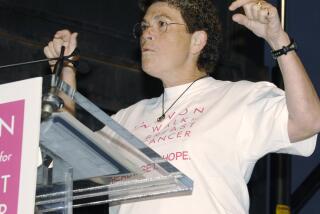Love’s ‘Forever Changes’ Still Sounds Invigorating
- Share via
For most of the world, the Summer of Love was in 1967, but in Los Angeles the Summer of Love--as in the band Love--was two years earlier, when the rock group stormed to the forefront of the Hollywood club scene, the most happening in the land.
Or maybe it was 1966, when Love’s singles “My Little Red Book” and the Who-octane “7 and 7 Is” became part of the city’s aural landscape. (They were only minor hits nationally, symptomatic of the imbalance that would always exist between the group’s stature at home and away.)
Or maybe it was 1967 after all, when Love released “Forever Changes,” an album that would become a perennial on those “overlooked classics” and “all-time great albums” lists. Rhino’s new reissue, remastered and with bonus tracks, provides another occasion to see whether it qualifies.
*** 1/2 Love, “Forever Changes,” Rhino. Led by an odd couple--the charismatic Arthur Lee, a black man with the heart of a rock poet, and Bryan MacLean, a white former Byrds roadie with a love of Broadway musicals--Love was the first notable multiracial rock band, the first rock act signed by folk power Elektra Records (starting the label on its path toward the Doors, the Stooges, et al) and, it’s claimed, the first group to fill a whole side of an LP with a single song (“Revelation” on 1967’s “Da Capo”).
Memphis-born, Los Angeles-raised Lee was a natural for the times, a flamboyant rock star in granny glasses and leather whose tastes ranged from R&B; to Johnny Mathis to folk-rock. With its range, energy and magnetism, Love soon came to rule the Sunset Strip, where the British-led rock explosion of the early ‘60s was being alchemized into the psychedelic soundtrack for the forming hippie culture.
“Forever Changes” was Love’s third album, and it came at a time when the band, which also included guitarist John Echols, bassist Ken Forssi and drummer Michael Stuart, was under the strain of internal tensions. Its status was so shaky that at the beginning of the sessions, producer Bruce Botnick brought in studio pros such as drummer Hal Blaine and guitarist Billy Strange to back Lee. That got the attention of the band members, who shaped up for the rest of the project (though the session players remain on the songs “Andmoreagain” and “The Daily Planet”).
“Forever Changes” was a startling contrast to the rawness of Love’s best-known singles. It was a folk-rock, chamber-pop opus built on a foundation of acoustic guitar and string orchestrations that evoke Simon & Garfunkel and Burt Bacharach. But it’s marked by an idiosyncratic sensibility that fuels its vision.
The album captures vividly the conflicting currents of 1967--idealism and paranoia, optimism and darkness. The richly melodic, propulsive music brims with longing and a sweet melancholy embodied in the first song, MacLean’s “Alone Again Or,” the album’s only track to make the charts as a single.
With its unconventional structures and inviting textures, “Forever Changes” remains a challenging and invigorating album, though it sometimes becomes precious and dated. Ultimately it falls a hair short of the consistency and timelessness of a “Pet Sounds,” a work to which it’s often likened.
(The basic, 11-song “Forever Changes” is also available on CD from Elektra, and the entire album is also included on Rhino’s in-depth, two-disc anthology “Love Story 1966-1972,” so if you’re not interested in the new edition’s bonus material--some outtakes, demos, alternate mixes and studio chatter--there are options.)
“Forever Changes” would exert a powerful influence on the art-rockers and power-pop bands to come, but it didn’t sell, as Lee’s indifference to touring and otherwise promoting the band contributed to Love’s isolation in the cult hall of fame.
This lineup soon dissolved. MacLean, who was the half-brother of singer Maria McKee, went on to record Christian albums, and died of a heart attack in 1998 at age 52. Lee fronted different bands billed as Love in the ‘70s, then drifted in and out of musical activity into the ‘90s, carrying a reputation as a bitter, difficult collaborator.
He was optimistic and upbeat as recently as 1994, when he was being backed by the L.A. rock band Baby Lemonade, but a series of scrapes with the law culminated in 1995, when he was convicted on a handgun charge. Lee, who turned 56 this week, is currently serving a 12-year sentence in Pleasant Valley State Prison in Coalinga.
More to Read
The biggest entertainment stories
Get our big stories about Hollywood, film, television, music, arts, culture and more right in your inbox as soon as they publish.
You may occasionally receive promotional content from the Los Angeles Times.









